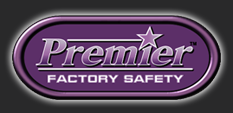There are many, many standards issued by the United States Department of Labor’s
Occupational Safety and Hazard Administration. These standards cover everything occupational
safety and health, and range from things like lockout tagout and arc flash, to confined space
procedures and evacuation plans, to safety signs and the treatment of hazardous chemicals. But
perhaps the most important part of any standard relates to the personal protective equipment
required. And the standard which governs personal protective equipment in general is Standard
1910.132.
The reason personal protective equipment is so important is that it is literally the last line of
defense for any employee. Whether the employee works with machinery, hazardous chemicals,
deafening noises, or any other hazard, the last failsafe is the personal protective equipment he or
she is wearing. So it is imperative it is up to code. If it is not, employees can get hurt or killed at
work, and your company can face large fines from OSHA and larger losses in civil lawsuits.
When thinking about personal protective equipment, it is important to think about what
equipment is required for each employee, what training is needed to teach the employees about
the equipment, whose responsibility it is to provide said equipment, and whose responsibility it is
to test and maintain the equipment. Training is needed for just about every single piece of
personal protective equipment. When in doubt, err on the side of caution. It is better to be
overcautious than undercautious.
And it is imperative you have all of these questions answered and your formal training written
into formal policies and procedures. Should you ever face an audit from OSHA, or a civil lawsuit
from an injured employee, these documents will save your company. It is also the only way to
ensure every employee and manager understands the responsibilities of the employees and the
company. If you do not have your personal protective equipment policies and procedures
formally written out and disseminated to your employees, it is time to get that done.
If you have any questions about personal protective equipment, which equipment is required of
certain employees, or how to properly create personal protective equipment policies and
procedures, please contact us. If you have anything to add about personal protective equipment,
please leave a comment.

Leave A Comment